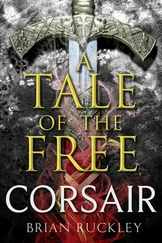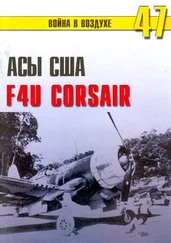Hector’s tether had been left long enough for him to join them, and he found they were pulling out sheets of thin flat bread which they ripped to pieces and shared out amongst themselves. Beside the basket stood a small tub of water with a wooden scoop. Hector took a sip, spat to wash his mouth out, and then drank deeply. He broke off a piece of the bread and tasted it. It was slightly gritty but wholesome. In the basket were also small fruits which he recognised as a delicacy his mother had occasionally received from her family in Spain. He bit into one and spat out the stone, an olive. Picking out half a dozen of them and another chunk of bread, he retreated to his place by the hull and began to eat, feeling better with every mouthful. Now he realised that he was the only person who had been manacled and tethered. Everyone else in the hold was free to move about.
While his fellow captives fed, Hector picked steadily at the knot in the rope that bound him to the ring bolt. It was some sort of complicated seaman’s knot but eventually he managed to work it loose. Holding the tether in a loop so it did not trip him, Hector moved across to talk to the villagers. He was feeling a little awkward. Though he had spent his summers among them, he did not know any of the older men very well. The difference in their backgrounds was too great; the son of a gentleman, however impoverished, had little in common with peasant labourers and fishermen. ‘Has anyone seen my sister Elizabeth?’ he asked, embarrassed to pose such a question when he knew that each one of the men must have his own immediate troubles. No one answered. He knelt beside the cooper, who had always seemed a sober and level-headed family man, and repeated his question. He noticed that the cooper had been crying. There were streaks where the tears had run down his face and mingled with blood that leaked from the gash in his chin. ‘What happened? Where’s my sister Elizabeth?’ he repeated. The cooper seemed not to understand his question, for he only mumbled: ‘God has made a second Taking. To Israel he promised a return from the captivity, yet we are twice punished and left in darkness.’
The man was a devout churchgoer, Hector recalled. Like all of the tradesmen, the cooper was a Protestant and regularly worshipped in the village chapel. It was the poorer sort – the fishermen and the landless peasants – who were Catholic, and they crossed to the island each Sunday to attend Mass with the friars. Hector, with his Protestant father and his Catholic mother, had never given much thought to this arrangement. He had little or no interest in religion, and veered as easily between one faith and the other as switching languages when speaking to his parents. He dimly remembered people talking about ‘the Taking’, but usually in hushed tones and he had never enquired further, believing it to be none of his business.
Deciding that he would have to take matters into his own hands if he was to find out what was happening, he rose to his feet and walked across to the ladder leading to the hatch. Climbing up, he started to beat rhythmically on the underside of the timber with his wrist fetters. Within moments he heard an angry shout and then the sound of running feet. Once again the hatch was opened, but only a crack, and for a brief instant he caught a glimpse of blue sky with white puffs of cloud before the end of a broad-bladed sword was thrust down to within a few inches of his face. He stood stock-still so as not to provoke the swordsman any further, then slowly tilted back his head so that he could look up and said carefully, first in English and then in Spanish, ‘Please can I speak with the captain?’ He was gazing past the blade and into the face of the same sailor who had brought the basket of bread. The sailor stared at him for a moment, then called out in a language Hector did not understand. Hector heard a murmured exchange and the hatch was opened wider and a second man, presumably a petty officer, was gesturing for him to climb up.
Clumsy in his manacles and with his tether still looped in his hand, Hector scrambled out of the hatch. After the stuffy darkness of the hold the world was full of light and sunshine, and he breathed deeply, glad to fill his lungs with fresh sea air and feel the breeze against his skin. He was standing on the deck of a fair-sized vessel, and though he was no sailor he could appreciate that the ship was making rapid progress over a sea of such vibrant blue that it almost hurt his eyes. When the vessel heeled slightly to a puff of wind he lost his balance and, recovering, glanced over the ship’s side. There, a musket shot away, a second ship was running swiftly on a parallel course, keeping pace with them. From the tip of each of her two masts streamed out long pennants, blood-red in colour, and at her stern flew a large green flag decorated with three silver crescent moons. The petty officer, a short and muscular man, was balancing easily on the sloping deck and waiting for him to speak. ‘Please,’ Hector said, ‘I wish to talk with your captain.’ The man’s dark brown eyes looked him over. Surprisingly the examination was not hostile, merely professional. Then, reaching forward to take hold of the young man’s tether, he led him like a cow to its byre as he strolled towards the stern of the vessel. There, under an awning, Hector saw the same white-bearded man who had struck him down so expertly with the pistol butt. Hector judged him to be in his late fifties, perhaps older, yet he looked trim and fit, and radiated authority. He was comfortably seated on cushions, a dish of fruit lay beside him, and he was exploring his mouth with a silver toothpick. Gravely he watched Hector and his escort approach and listened to what the petty officer had to report. Then, laying aside the toothpick, he said, ‘You have courage, young man. You put up a good fight, and now you do not fear what my men might do to you if you anger them.’
‘If it pleases your honour . . .’ began Hector, and then stopped abruptly. His mouth fell open. He had been about to ask what had happened to Elizabeth, and it had taken several seconds for him to realise that the ship captain had spoken in English. For a moment he thought he had misheard or was imagining. But no, the captain went on in English that was accurate, if a little hesitant, as though he was occasionally searching for the correct phrase. ‘Tell me, what were you doing in the village?’
Hector was so astonished that he could barely get his own words out. ‘I was a student with the friars on the island. With my sister. How is it . . . ?’ he faltered.
‘How is it that I speak your language?’ the captain finished the question for him. ‘Because I am originally from that village myself. Now I am called Hakim Reis, but once I was known as Tom Pierse. Though that is a long time ago now, more than fifty years. God has been kind to me.’
Hector’s mind was in turmoil. He could not imagine how this exotic mariner with his foreign dress and outlandish manner could claim to have come from a poor village on Ireland’s Atlantic coast. Yet the captain spoke English with the distinctive lilt of the region.
Hakim Reis saw his puzzlement.
‘I was just seven years old when I was taken. So too were my mother and father, two brothers and my grandmother. I never saw them again after we were landed,’ he said. ‘At the time I thought it was the greatest tragedy. Now I know it was God’s will and I thank him for it.’ He reached down and took a fruit, chewed on it, and then placed the stone back in the dish.
‘So I was curious to see what the place is like now. That is why I decided to pay a brief call, and what point would there be in a visit if I did not make a profit from it? I must admit that it is not as I remember, though of course I still knew the hidden landing place and how to approach without being seen. The village is smaller now, or maybe that is how it always seems when one revisits a childhood haunt. Everything has shrunk.’
Читать дальше








